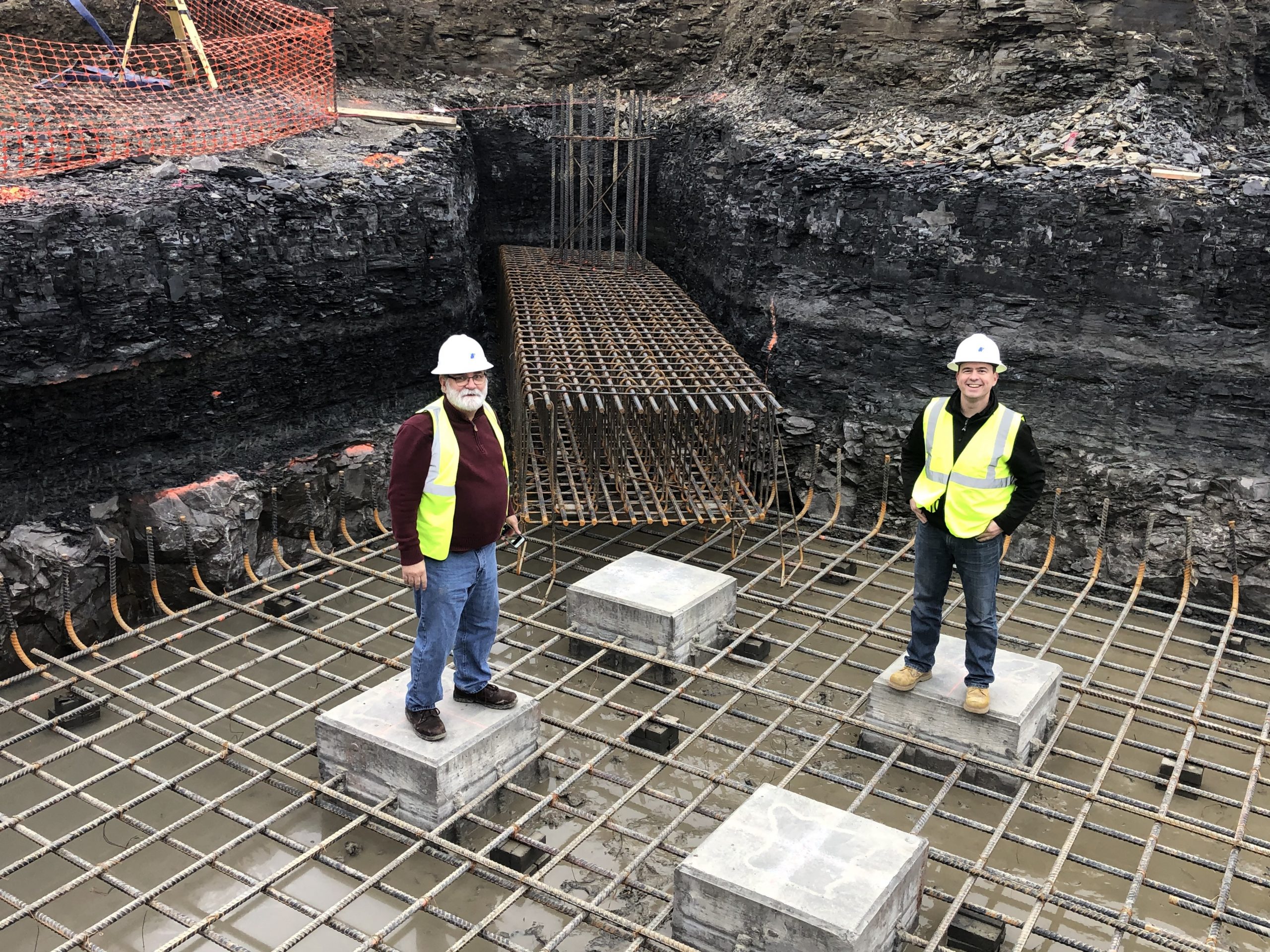Boston Red Sox vs. New York Yankees. Harry Potter vs. Voldemort. Hatfields vs. McCoys. OU vs. Texas.
Engineers vs. Contractors.
Some epic rivalries will just never cease. But Engineers vs. Contractors doesn’t have to be on that list.
I think you’d be hard pressed to find an engineer who’s never been exposed to a “there’s no such thing as a good contractor” attitude. You’d be equally hard pressed to find a contractor who’s never heard “there’s no such thing as a common-sense engineer.” But the truth is there are good contractors and common-sense engineers out there! And as an engineer, facilitating a great engineer-contractor relationship can take your career to the next level on several fronts:
- Constructability – The designs you dream up may not always be the most feasible or efficient in the field. Running your ideas past a trusted contractor before finalizing designs can head off potential construction issues. A little extra time spent seeking out suggestions to minimize labor and costs can pay off in the form of financial savings for your client, fewer headaches during construction, and valuable knowledge for future projects.
- Estimates – Having a good contractor on speed dial is a great way to acquire quick, rough cost estimates for your clients. This added service will boost your value in your client’s eyes and help to make you their go-to resource for future questions and projects.
- Design-Build – If you have a great working relationship with a contractor you trust, you can start bringing them to the table for projects, offering your client efficient design-build solutions. Teaming up with someone you trust and enjoy working with can make a project go more smoothly and quickly, which is an all around win for the client, engineer, and contractor.
A great engineer-contractor relationship can be powerful and efficient. The trick for young engineers is knowing how to recognize one, and then developing the professional skills to gain that contractor’s trust and create a lasting relationship.
As an engineer, you’re going to meet and work with a range of contractors throughout your career, some better than others. Here are four tips for spotting a quality contractor that you should strive to develop a relationship with:
1. A good contractor’s actions speak louder than promises….
Almost every contractor is going to tell you they want to do it right. But does their work back up their words?
Contractors often use buzzwords like “on time,” “under budget,” and “done right.” Most contractors will do their best to follow through, and the top ones will succeed. Actively checking in with your contractor and keeping an eye on a few key items can give you an idea if they are backing up words with actions, on track to deliver a quality product, and a company you would want to work with in the future. Wallace Principal Brian Walker, PE, SE, suggests checking to see if your contractor is:
– Managing projects with defined, consistent hierarchy (project manager, superintendent, support staff)
– Producing and sharing schedules that map out sequence, critical path, and key milestones
– Running neat and orderly job sites, with materials properly stored
– Producing quality work, with few mistakes noted during special inspections or structural observations
– Fostering cooperation and positive relationships with and among subs
2. …But a good contractor’s questions can speak louder than actions.
Have you ever had a project that you know has entered the construction phase, but you haven’t heard anything from the contractor? It’s obviously because you made the construction documents so clear and easy to follow and implement, that the contractor is having no problem building your project exactly to your specifications…right?
I hate to burst your bubble, but that’s probably not the case. Even if your drawings were perfect and your contractor top-notch, there still might be some differences in interpretation or required clarifications.
“[Contractors] who clearly want to do it right and by the book will call to ask questions,” says Wallace Associate Dan Popp, PE, SE.
Walker adds that not only is asking questions the sign of a good contractor, but asking questions in advance is key. Reaching out with insightful questions before the milestones means the contractor is “looking and planning well ahead of schedule and identifying challenging or unclear requirements in the drawings and specifications.” Receiving questions from your contractor is a positive sign. It means they have studied your construction documents and want to make sure their team delivers the best product.
3. A good contractor respects your strengths….but also knows that you respect theirs.
Wallace Principal Dan Mazzei, PE, SE, CWI, RRO sums up the basics of the engineer-contractor relationship:
“We come to the table with a lot of technical knowledge and some idea how to build stuff, and the contractor comes with some technical knowledge and a lot of ideas how to build stuff.”
Sounds like a pretty good combination, doesn’t it?
It boils down to a trusting give and take between both parties. At the end of the day, the only way the contractor is actually going to read all the drawings and specs and ask the questions is if they understand the engineer’s role and trust that the engineer has put serious consideration into the design. That the engineer has made sure the design can handle required loads and meets all code requirements and that all the details and specs have a purpose.
“They understand that you really put effort into describing what has to be done…that you’re not just adding words and details to drawings and specifications just to fill blank the space,” notes Mazzei. “They do what you say but challenge you if it doesn’t make sense.”
If the contractor does find something they think is questionable or if they have an alternative idea, you want them to come to you with questions or recommendations and not just do their own thing.
“Really good contractors like to know that engineers want to hear their opinion,” says Mazzei.
4. A good contractor values collaboration.
Not everything will go smoothly on a job site, it’s just the nature of construction. When something goes wrong, who’s fault is it? Is it a problem with the engineer’s design, or the contractor’s installation? Or, perhaps both? Either way, someone will have to pay, but no one likes to be thrown under the bus.
According to Mazzei, the best approach is a collaborative frame of mind, where both parties are focused on meeting the client’s needs, developing positive relationships, and managing an exceptional project, while being careful to avoid making themselves look better at the other’s expense.
“Once you cross that hurdle, the potential is limitless,” says Mazzei. Find a contractor who is looking out for your interests, just like you should be looking out for theirs.
The engineer-contractor relationship is a two-way street. Of course, you want to work with a good contractor, but you also have to be the kind of person and engineer that a quality contractor wants to work with.
Next week, we’ll talk to some respected contractors who work with Wallace and take a look at the opposite side of the coin. Now that you know what to look for in quality contractors, find out how you can improve your professional skills to gain a good contractor’s trust and develop a long-standing working relationship.



Your post covered all crucial questions and was very instructive. Keep posting!
It’s truly heartening to see that residential construction employment has not only rebounded but has surpassed pre-pandemic levels, as highlighted in this insightful blog post. The construction industry’s resilience is a testament to its vitality and the dedication of professionals in the field.
As a Concrete contractor new york, I’m particularly thrilled to witness the positive momentum in the construction sector. The recovery not only signifies economic rejuvenation but also showcases the enduring demand for housing and infrastructure development. It’s an encouraging signal for those of us involved in the concrete business, knowing that our expertise remains in high demand.